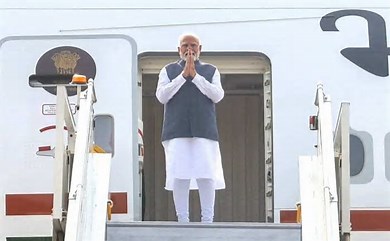
“Fat cat” is defined in the Oxford Learner’s Dictionary as a “person who earns, or who has a lot of money (especially when compared to people who do not earn so much)”. There are growing questions in the South, be it in India or elsewhere, including flooded Pakistan or drought-stricken Africa that the West, overall, not only represents fat cat nations. But that they have been squandering and wasting too much of the global wealth and resources. That is in some ways, they need to slim down to the benefit of the South and in fact, for the entire planet.
Be it in terms of obesity, government spending, money printing, the amount of environmental harm it is doing and militarily there is a good argument that the West needs to stop behaving in such an overly bloated and irresponsible way. And possibly upscale in promoting inclusiveness and more sharing on global decisions and resources with countries less fortunate than itself. That is rather than hogging so much that it appears like immoral gluttony to many of the less well-off.
For example, India should not be penalized by the West’s high obesity and negative green footprint. In fact, according to worldpopulationreview.com, India has one of the lowest obesity levels while the West ha some of the highest. It is a huge gap while still so much of the South starves or is malnourished, compromising development, especially in infants.
India and much of the developing world coincidentally have hugely much smaller carbon footprints per capita as the data provided by Ian Bremmer of Eurasia, a think tank shows in his recent posting in LinkedIn. Again, the “champions” are from the West with the US second worst.
So, is there any relation between environmental degradation and obesity? It is a complicated what is clearer though is that certain forms of obesity may be more harmful to the environment. In the West, for example, raising of farm animals and certain herds for meat has been shown in some instances to contribute highly to the output of methane gas, one of the worst types of gas for its impact on global warming.
Thus, societies that are highly oriented to eating large amounts of fat containing meat in regular meals like in the United States to Canada to parts of Europe may not only explain partly the high levels of obesity, but their important contribution to climate change aggravation.
Also, fast food which has highly advanced in popularity for decades in the West and sadly expanded to parts beyond, often contains high levels of animal protein and few vegetarian options. Certain Indians and their youth who may swallow this food culture too much due to glitzy western marketing campaigns, need to remember the better nutritional value of foods be they from their mother’s wisdom, local stalls and vendors. Even food from Mumbai “slums” is being celebrated by certain chefs around the world. Another warning to Indians not to go down this fat road with a dead end follows. Obesity has gripped so much of the West so badly, leading to higher medical expenses because of related illnesses such as diabetes, heart disease and cancer. In fact, a whopping 17 percent of US GNP (statista.com) goes to health costs with many US citizens bearing high treatment and prescription medicine costs that are much cheaper and also of high quality in India. Indeed, prescription costs should be slimmed down by making cheaper, high quality lower priced Indian generic medicine more easily available to westerners.
And speaking of government financial waste and the need to fiscally slim down, the US per capita debt is over 88,000 US dollars while the figure for more fiscally slim India is but only 1,700 US dollars. The mass borrowing of trillions of dollars by the US government in Washington and Europe is so bloated that it has crowded out borrowing for many countries in the South, has driven up interest rates and added to their inflation. Elevated food prices cannot be all blamed on the war in Ukraine. Maybe it would be better explained that in too much of the West there has not been enough of a “war on the waistline”, which would free up more food and foodstuffs on the international market, thereby bringing food prices down, even in India?
The level of obesity in the West needs to be looked at from another angle. Dr Jordan Peterson, a world leading clinical psychologist in a YouTube conversation appears to be moving to an understanding that obesity can be related to mental illness. Is there such a collective illness in much of the West, then?
Indeed, it is known that eating certain food can lead to the release of serotonin, a natural “anti-depressant”. And evidence indicates that in societies like the United States there are high levels of depression to go along with the popularity of addictive, sugar-based foods like donuts. But more excessive levels of eating to stay happy is clearly not the answer.
But back to high consumption per capita countries and their green impact. Now these western countries agreed to some decades ago to what the UN put forward of an Agenda 21, a strategic action plan following the increased awareness that the environment is in trouble. But I argue that the consumption patterns in the West remain so high that even with the part implementation of this plan, the West is degrading the planet way too much, especially at an individual level as the carbon figures indicate and beyond. A more fiscal and more balance western military, again might help to stem reckless consumption.
Peter Dash is an educator. He has lived in Asia for 20 years teaching multinational managers, certified teachers and university and school students and presenting at academic conferences.















